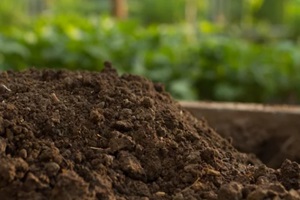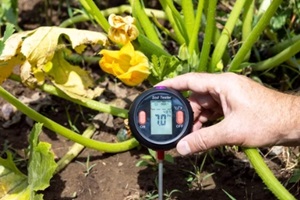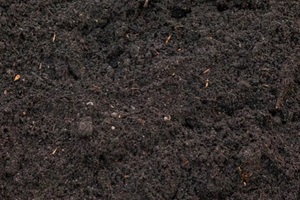 In the quest for abundant and healthy harvests, the magic often lies beneath our feet — in the soil itself. But not just any soil; bio mix soils, or bioretention soils, are revolutionizing sustainable agriculture and stormwater management.
In the quest for abundant and healthy harvests, the magic often lies beneath our feet — in the soil itself. But not just any soil; bio mix soils, or bioretention soils, are revolutionizing sustainable agriculture and stormwater management.
These innovative blends of soil materials are pivotal in filtering stormwater through systems like retention ponds and rain gardens, and they hold the key to unlocking the full potential of our crops.
Central to this is the concept of pH balance — a key factor that influences nutrient accessibility, microbial activity, and the general health of the soil.
Understanding and optimizing the pH balance in bio mix soils can significantly enhance the growth and yield of your fruits, leading to fruitful harvests that are as rewarding for the grower as they are beneficial for the environment.
Let’s explore how maintaining the ideal pH in a custom soil mix can be your secret ingredient for a thriving and productive home garden.
What are Bio Mix Soils?
Bio mix soils, also known as bioretention soils, are engineered blends specifically designed to aid in stormwater management while supporting plant growth.
Unlike conventional soil, bio mix soils are formulated by combining various soil materials, such as sand, compost, and loam, to create a porous and nutrient-rich medium.
This unique composition allows the soil to effectively filter and store stormwater, reducing runoff and improving water quality.
On top of this, the presence of organic matter boosts soil fertility to create a more conducive environment for root growth and the absorption of nutrients.
The Essential Role of pH in Soil Health
The pH level of soil, a measure of its acidity or alkalinity, is an important factor that directly influences plant health and productivity.
It’s essential to recognize that the wrong pH often won’t immediately kill plants; instead, it can subtly impair their growth and result in less vibrant blooms or diminished crop yields.
This impact varies with the plant’s sensitivity to pH changes. For instance, many plants have the remarkable ability to adapt to a range of pH levels, although not without consequence to their growth or output.
Take hydrangeas as a prime example: these plants can serve as living indicators of soil pH. Depending on whether they are grown in acidic or alkaline conditions, hydrangeas will produce flowers in strikingly different colors.
This phenomenon highlights the adaptability of some plants to pH variations and underscores the profound influence of soil chemistry on plant characteristics.
Most plants thrive in soils with a pH range of 6.0 to 7.0, where nutrient availability is at its peak. However, bio mix soils can sometimes deviate from this ideal range due to their specialized components and the environmental conditions they are exposed to.
An imbalanced pH can lead to nutrient lock-up, where essential nutrients become unavailable to plants, stunting growth and reducing yield. Therefore, monitoring and adjusting the pH of bio mix soils is paramount to ensure they provide a conducive environment for plant growth.
Adjusting pH for Optimal Plant Growth
 When bio mix soils exhibit pH levels outside the optimal range for plant growth, adjustments must be made. For soils that are too acidic (low pH), applying lime can help raise the pH.
When bio mix soils exhibit pH levels outside the optimal range for plant growth, adjustments must be made. For soils that are too acidic (low pH), applying lime can help raise the pH.
Conversely, for soils that are too alkaline (high pH), incorporating sulfur can lower the pH.
It’s important to apply these amendments according to soil test recommendations to avoid overcorrection, which can be just as detrimental as the initial pH imbalance.
Regular testing and gradual adjustments can help maintain the pH within the desired range for your custom soil mix, ensuring that nutrients are available for plants to absorb and utilize.
Nutrient Availability and pH Interaction
The availability of various nutrients in the soil is directly influenced by its pH level. For example, nutrients such as nitrogen, phosphorus, and potassium are most accessible to plants in soil conditions that range from slightly acidic to neutral pH levels.
Micronutrients, such as iron and manganese, become more available in acidic conditions but can reach toxic levels if the pH is too low. Conversely, a high pH can lead to deficiencies in these micronutrients.
Understanding these interactions is essential for properly managing bio mix soils, as the goal is to optimize the availability of all necessary nutrients for the plants being cultivated.
pH and Microbial Activity in Bio Mix Soils
Microbial activity is another aspect of soil health that’s directly and profoundly affected by its overall pH. Soil microorganisms, including beneficial bacteria and fungi, play vital roles in organic matter decomposition, nutrient cycling, and disease suppression.
These microbes typically thrive in a pH range similar to that preferred by most plants on the planet. It’s important to note that an unbalanced pH can inhibit microbial activity, diminishing soil fertility and structure.
Therefore, maintaining the right pH in bio mix soils not only supports plant health directly through nutrient availability but also indirectly by fostering a vibrant microbial ecosystem.
Practical Steps for Managing pH in a Custom Soil Mix
To effectively manage pH in bio mix soils, regular monitoring is imperative. Soil pH testing should be conducted periodically to detect any shifts that might affect plant health.
If adjustments are needed, they should be carried out gradually and reevaluated over time to ensure the desired outcome is achieved.
Also, understanding the specific pH preferences of the plants being grown can guide the adjustment process, ensuring that the soil environment is tailored to their needs.
Incorporating organic matter, such as compost, can also help buffer the soil pH, making it more stable against sudden changes.
This is particularly beneficial in bio mix soils where the balance of organic and inorganic components is key for both water filtration and plant growth.
Partner With The Northern Virginia Bio Mix Soil Experts
 Today’s article has shed some helpful light on the unique attributes of bio mix soils, emphasizing the vital role pH levels play in enhancing plant health and yield.
Today’s article has shed some helpful light on the unique attributes of bio mix soils, emphasizing the vital role pH levels play in enhancing plant health and yield.
Adopting modern, informed practices to maintain optimal soil conditions allows gardeners and farmers to boost their plant growth and gardening productivity significantly.
Understanding and adjusting the pH of bio mix soils isn’t just some scientific endeavor — it’s a practical approach to fostering healthier plants and more productive gardens or farms.
Whether you are tending to a small backyard garden or overseeing extensive agricultural fields, the knowledge and strategies shared here can lead to healthier soil, robust plants, and impressive yields.
If this article has sparked your interest in optimizing your own gardening or agricultural efforts with bio mix soils, Dirt Connections is ready to help you.
Residents of Virginia can reach out at 1-(703)-940-9949, while those in Maryland can dial 1-(301)-691-3215. Additionally, anyone interested can visit Dirt Connections online to learn more about their bio mix soil offerings.
Connect with us today to take a substantial stride in fostering a more fruitful and lively garden or farm of your own.
Summary

Dirt Connections was started with one goal in mind: providing quality residential and commercial construction services to clients on time and on budget. Reach out for more information on how we can support your next project.
For your convenience our estimates are free and by appointment. Call 703-940-9949 for a free estimate today!









































